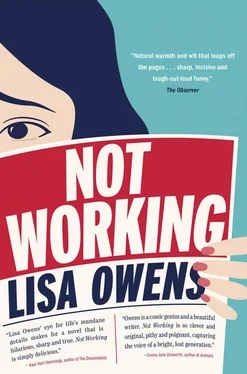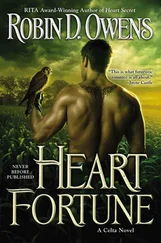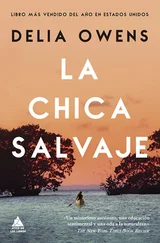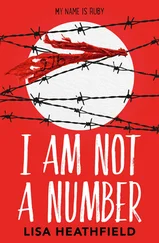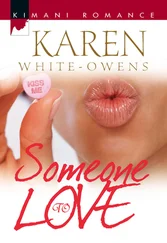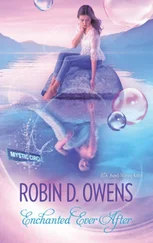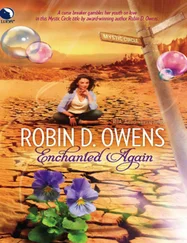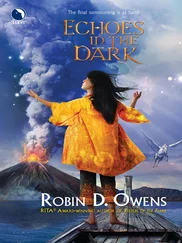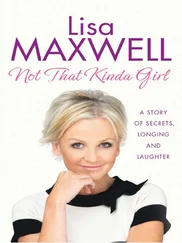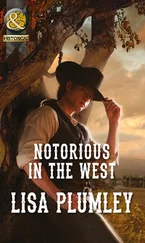“Ha,” says Andrea to her device.
“I mean it,” I say. “Why is it presumed to be the case that warm, sunny weather is good, when we know for a fact that rising temperatures are causing all kinds of mayhem? Do you think Somali weather forecasters are as upbeat about sunshine as we are?”
“Well, bad weather is linked to depression,” Andrea says. “Seasonal affective disorder — there’s a scientifically proven link between sunshine and happiness, and between gloomy weather and sadness.”
“You’re doing it too,” I say. “Bad weather, gloomy weather. We’ve just been conditioned to think that way. If we were taught to love the rain and the cold, we’d be a much happier nation.”
“Just imagine if you put all this time and energy into an actual job,” says Andrea. “Seriously, you’re wasted in…doing nothing.”
“What are you doing for Christmas?” I say, counterfeiting a yawn to suggest nonchalance, which in turn sets Luke off on a genuine one.
“I think I’ll be working — my parents and sister might come down to London, rent a flat nearby or something. Why?”
“What about if I spent it with you?”
He looks up. “This is quite the change of heart.”
I gnaw on a thumbnail. “We’ve been together seven years. If not now, when?”
“Wait,” he says, “is this about your mum? Are things really that bad? You’ve always said you could never leave your family at Christmas.”
I shrug. “I think she just needs some space. I’m sure they’ll work it out — they can have Grandma instead, go on a cruise or something.” I move in close so our noses touch. “Anyway. You are my family.” His face crumples into a silly, soppy smile — for which I would mercilessly mock him, if it weren’t the very mirror of my own.
In the park, a tiny dog trots by. In its mouth, a branch four times its size.
In a fit of bored nostalgia, I Google a childhood friend with whom I’ve long since lost touch. She seems immune to the social-media pandemic that’s claimed most of my generation (or perhaps she’s wisely avoiding it), but at last I find her several pages into the search results. She’s working in Aberdeen, involved in the disposal of radioactive waste. Granted, when I saw her last, we were eight years old, but nothing — not her love of tomato ketchup, nor her peerless Sylvanian Families collection — gave the slightest indication this would be her path. Radioactive-waste disposal! Aberdeen! I try to imagine her life now and see: an office in a trailer, tea breaks with a gruff bearded colleague (the two of them like astronauts in their protective suits), air dense with drizzle, the dark drive home, a warm carpeted tract house tucked inside a cul-de-sac, a tabby rescue cat, husband in the kitchen with dinner in the oven, takeaway on Saturdays in front of the TV.
We’re reading in bed. Luke’s propped on an elbow with the sports pages from the weekend; I’m still deep in Ulysses .
“Have you ever thought about living somewhere other than London?”
“Where?” says Luke after such a long time I thought I’d imagined having spoken.
“This is what I’m asking you.” Another long pause. “Luke.”
“Give me an example.”
“Wherever appeals. Devon or Bristol or Yorkshire or Jersey. Aberdeen. The Outer Hebrides. Iceland, Nova Scotia, Newfoundland. Somewhere else.”
“No,” says Luke.
“Would you consider it?”
“ Ulysses not going well?”
“Shut up.” I knock him on the head with it, losing my page, which isn’t a terrible outcome. “I don’t mean move now —though I could be convinced, if you wanted to.”
“Nah,” he says.
“That’s that, then, is it? ‘Nah.’ ”
“Yup.” He turns back to the paper.
I pick up Ulysses, weigh the huge heft of it on my palm. “You know, I never actively chose to live here — I came because that’s what everyone else did. But there isn’t any reason why I’m still here.”
“Bit harsh.”
“No, no, of course you’re why I stayed. But it’s not as though I, personally, need to be here. Think about it: if you wanted, or needed, to relocate, I could go tomorrow. It might actually be easier on the job front — I could be anything I wanted somewhere else, like a dinner lady in Cornwall, or a receptionist in Fife. A librarian in Gloucestershire. For example.”
“You could be those things here.” Luke throws me a glance, a vague and lazy imitation of an interested person.
I put the book down and uncurl my legs. “No, here it would be weird. Here I’d be seen as eccentric. London is great, but it’s exhausting…The work culture here is so ambitious. Okay: name one of our friends who just coasts along in a middle-of-the-road job.” Luke reconfigures the paper with much thrashing and rustling, then settles down and keeps reading. “Exactly. You can’t, because there isn’t one. It all has to be really interesting, or creative or meaningful or prestigious or well paid or ideally all those things. Even the ones who went into shitty grad internships are making serious money now.”
He turns to me with a serious, sympathetic furrow, places both hands on my shoulders and finds my eyes with his. “Claire. I’m going to be honest. I feel it’s time.” He takes a deep breath. “I think…I really think you should give up on Ulysses . It’s okay: I won’t judge you. You’ll feel so much better.”
It’s tempting. Things have got so desperate recently I’ve taken to stroking the spine of Moby Dick when I pass the bookshelves, craving the wide majesty of the ocean, and even the lengthy technical passages about whaling, which rationally I know I’ll hate but right now hold a raw, anorak-ish appeal.
“Where are you up to, anyway?” asks Luke.
“You made me lose my page. Two hundred and something.”
“What’s happening?”
“It’s hard to explain. There’s no real story per se.”
“Try me,” says Luke. “I’ve read it.”
“You have not.”
“I have! When I was in Sri Lanka.”
“The whole thing? You read it all?”
“Of course the whole thing! It’s a masterpiece. Honestly, though, if it’s too much for you, I promise I won’t judge. It’s a challenging read and maybe you’re not in the right frame of mind for it. You could try Dubliners . It’s more digestible.”
I claw the book back open, but even as I start reading again, my attention’s already wandering off to tiny windblown villages crouching by the sea.
On the last train, a woman grimly chomps her way through an entire bag of gummy bears. I’ve been there, my friend, I think, taking in her rumpled office-wear and sallow, tired skin.
It’s been two months since I renewed my driver’s license — only eight months late — and I still feel a fillip of pride whenever I remember this achievement.
Next stop, the dentist, I tell myself most days, but have yet to show any sign of following through.
The buddleia has been variously described (over the course of today’s online research) as stubborn, self-sufficient, a rank opportunist, overbearing, dazzling, a nuisance, undemanding, charming, munificent, a home-wrecker, a butterfly bonanza.
When I was six and playing in the garden, a butterfly landed on my arm and remained there for ten proper — i.e. Mississippi — seconds. I held my breath as it flexed its wings, preparing us both for its imminent departure; for every (Mississippi) second it stayed, the more important and chosen I felt. But when it flapped away, and I ran inside to tell my mother, I found that the right words would not come, and so instead I kept quiet.
Читать дальше
